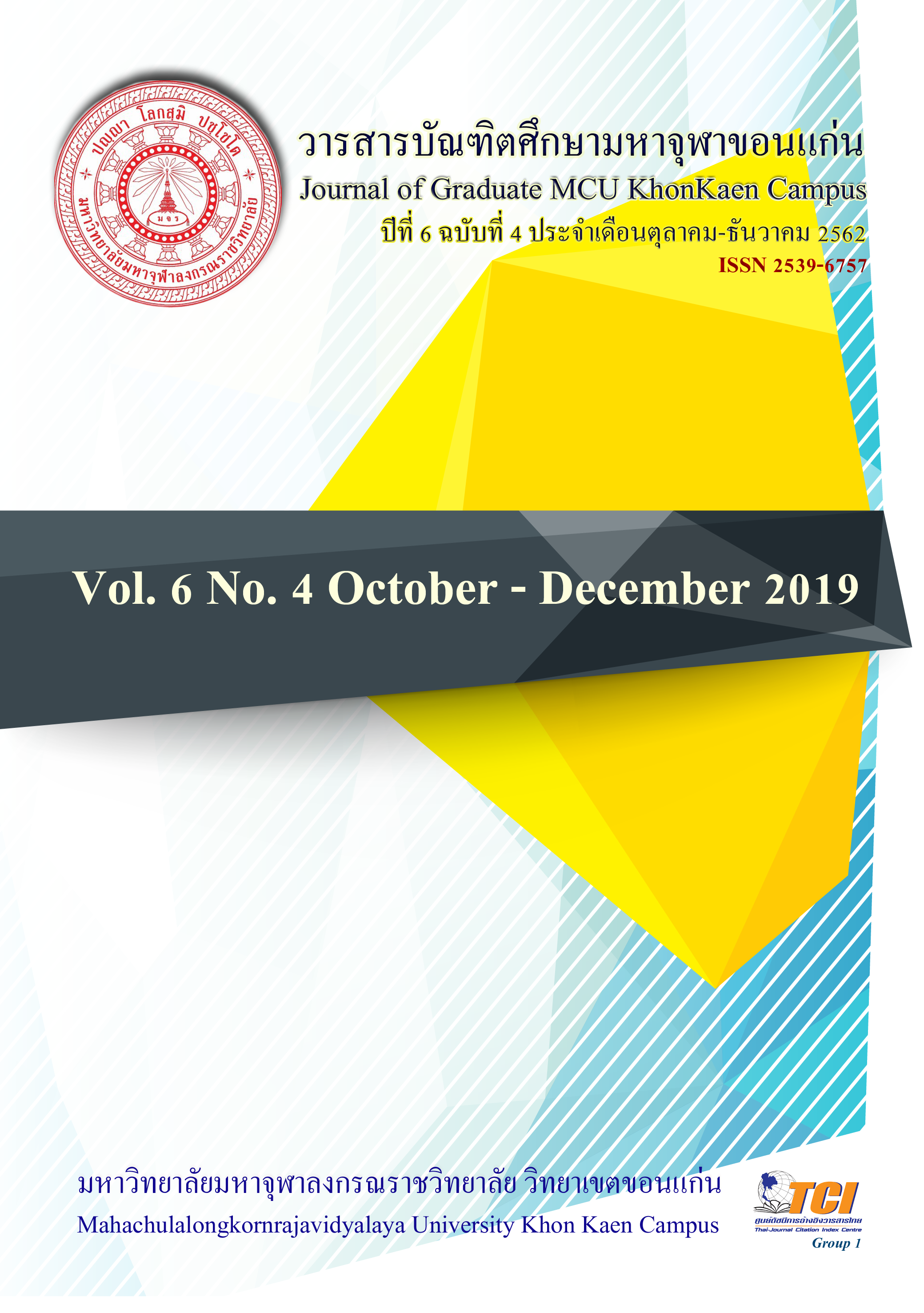A conflict management in thai health system According to Buddhist philosophy
Main Article Content
Abstract
The aims of this research were: 1) to study the conflicts in Buddhist philosophical perspectives; 2) to study the conflicts in Thai public health system; 3) to manage the conflicts in Thai public health system in accordance with Buddhist philosophical perspectives. This qualitative research had its tools as an in-depth interview, group dynamics and an observation form to collect the data from 15 key informants. The data obtained were interpreted by the descriptive analysis based on the analytic induction.
The research results revealed that
- 1. there are 2 types of conflict in Buddhist philosophy: internal conflict and external conflict. All conflicts originate from the roots of the three unwholesome causes (akusala-mūla): 1) greed which is the covetous desire of others’ belongings to be their own; 2) anger which includes thoughts of cruelty, vengeance, and other crimes; 3) delusion which is real ignorance, intoxication and carelessness. When the root of these three conflicts happens, it will show in physical, vocal and mental expressions, finally leading to conflict within the family, society, organization and nation.
- 2. The conflict in the Thai public health system is a conflict between service providers and service recipients, caused by four major reasons: 1) inequality of services; 2) errors in service causing more lawsuits; 3) conflict of interest; 4) conflict of a relationship.
3. The conflict management in the Thai public health system based on Buddhist philosophy can be made by using the process of talking or negotiating in a systematic manner or a process of mediation. At every step, the Buddhist philosophy is used in mediation, including 1) the principle of forgiveness, in the negotiation of mediation, the negotiators must forgive each other and must not feel vengeful; 2) nonviolence principle which refers to the negotiation of mediation with non-persecution; 3) the loving kindness principle which is the negotiation of mediation with love and compassion for colleagues to the service providers and service recipients.
Article Details
References
public health system" Ph.D. Ph.D., (GraduateSchool:
MahachulalongkornrajavidyalayaUniversity, 2012)Abstract.
Chaix- Coutries,C.et al., Effective of financial incentives on medical practice: results
from a system review of the literature and methodological issue, International Journal for Quality in Health Care, series no. 12(2), 2000, pp.133-142.
Phra Dhamma Pittaka (P.Payutto), dissolving conflict, (Bangkok: Dharma, 2006), page 3.
Phra Maha Hansa Thum Maha So, Phuttisanti Method: Integration of principles and
conflict management tools, (Bangkok: Company 21 Century Co., 2011), Page 22-23.
Phra Maha Hansa Thom Maha So, conflict management model by Buddhist Santi
Method: case study AnalysisMae Ivory Basin, Chiang Mai Province, Doctor of
Buddhist Thesis, (Graduate School: Mahachula UniversityRoyal College, 2005), page 345.
Orpriya wasummahanta, "Buddhist conflict management methods in the view of Phra
Paisan Wisalo", Master of Buddhist thesis, Graduate School
(Mahachulalongkornrajavidyalaya University, 2011),Abstract.

